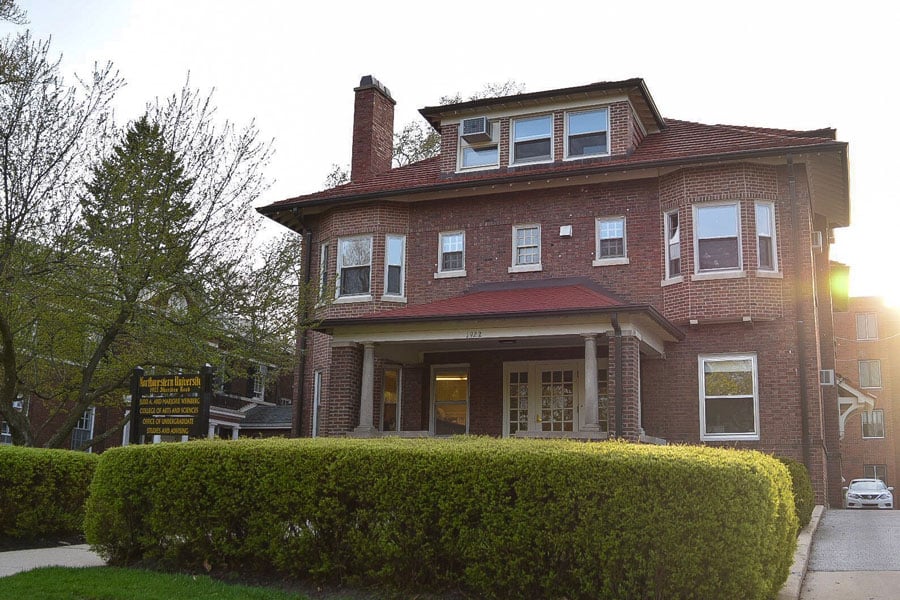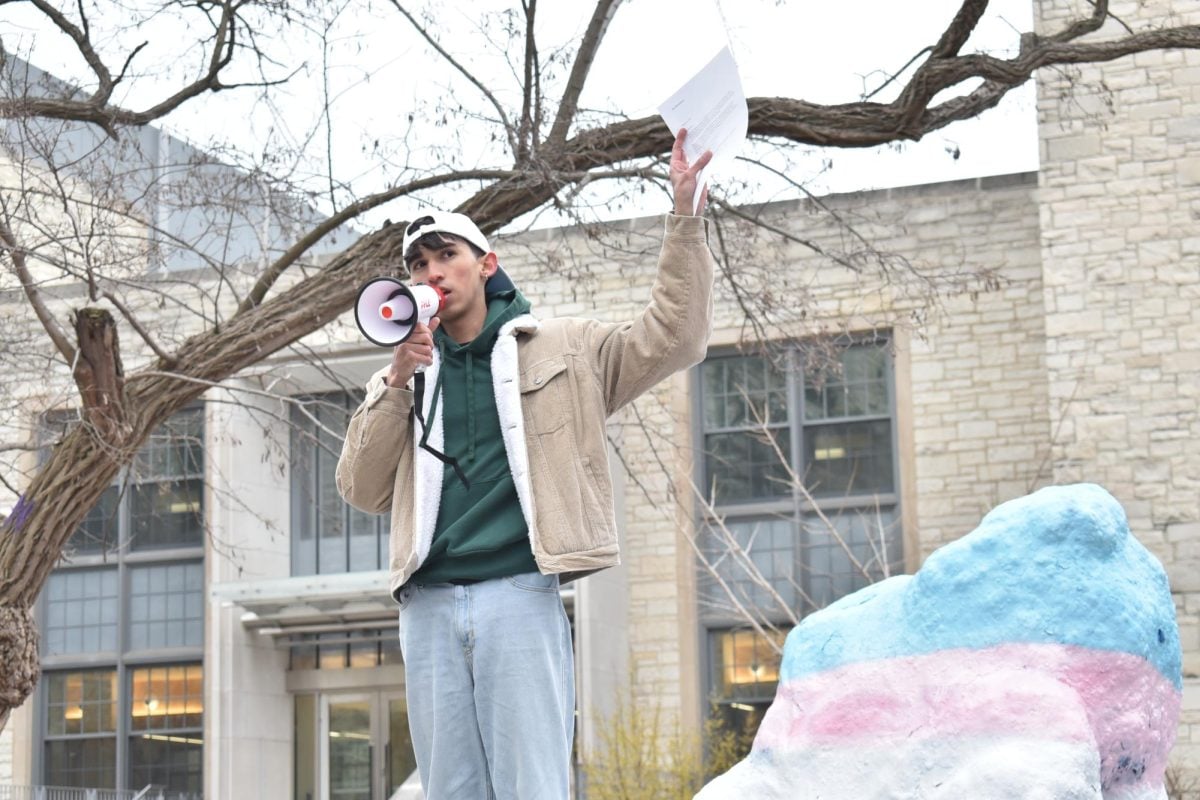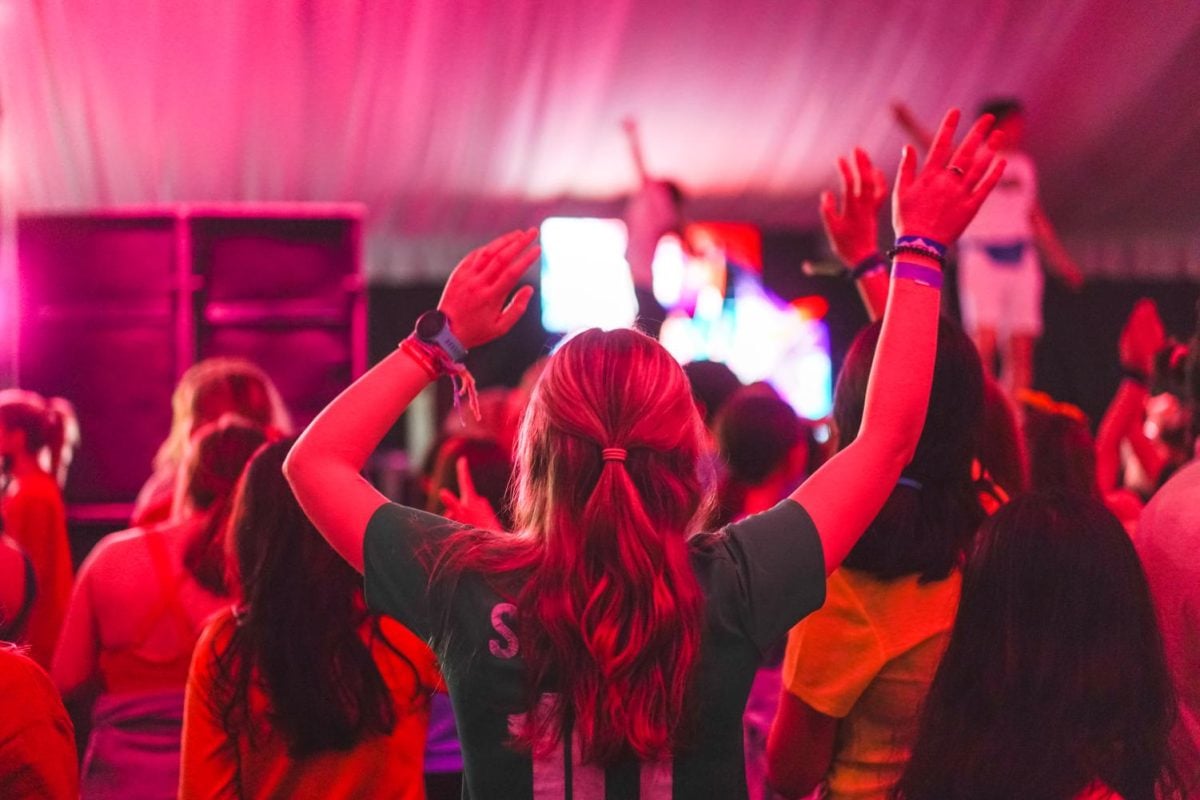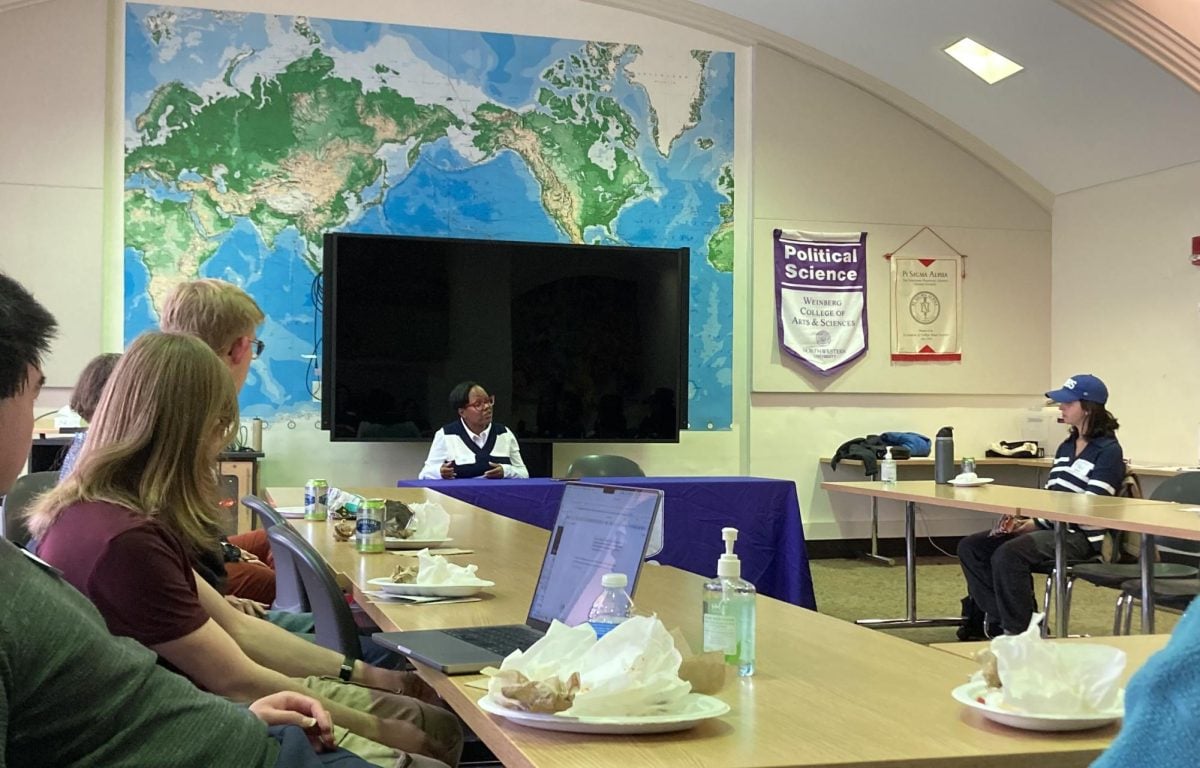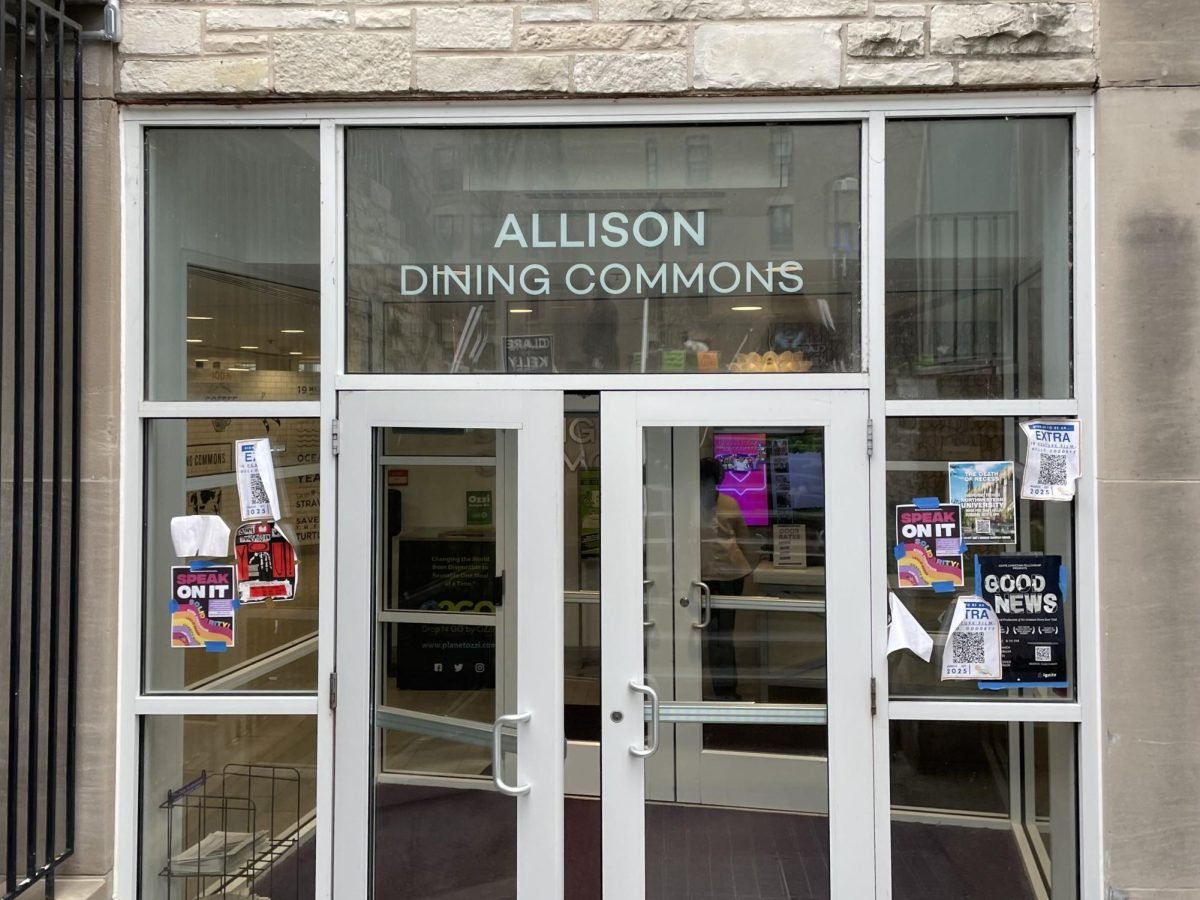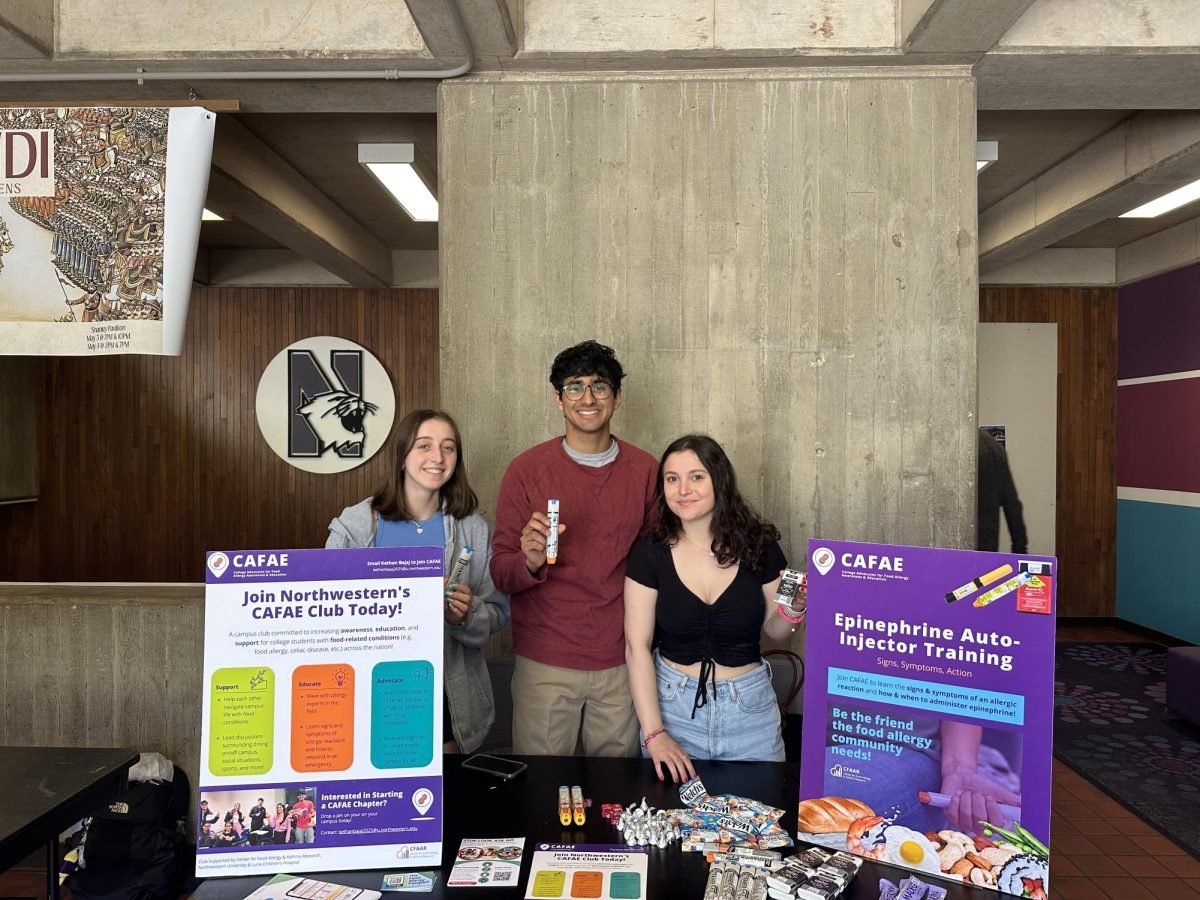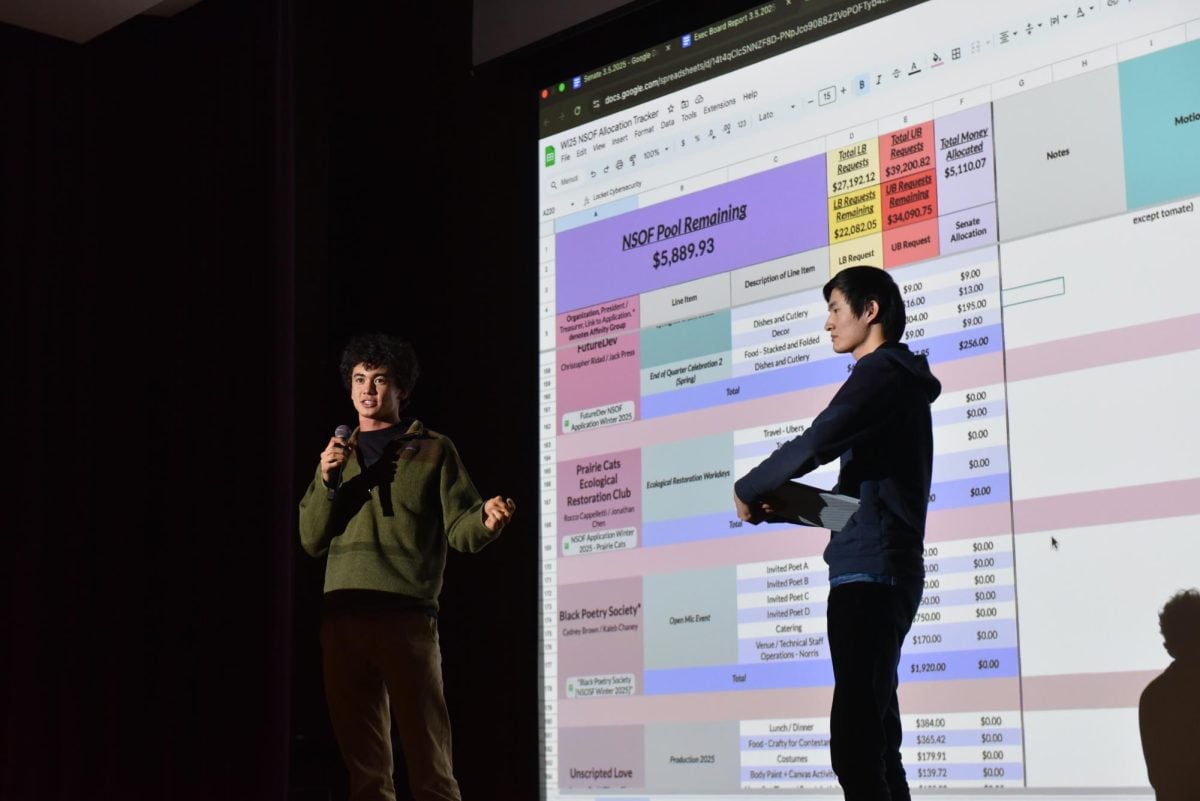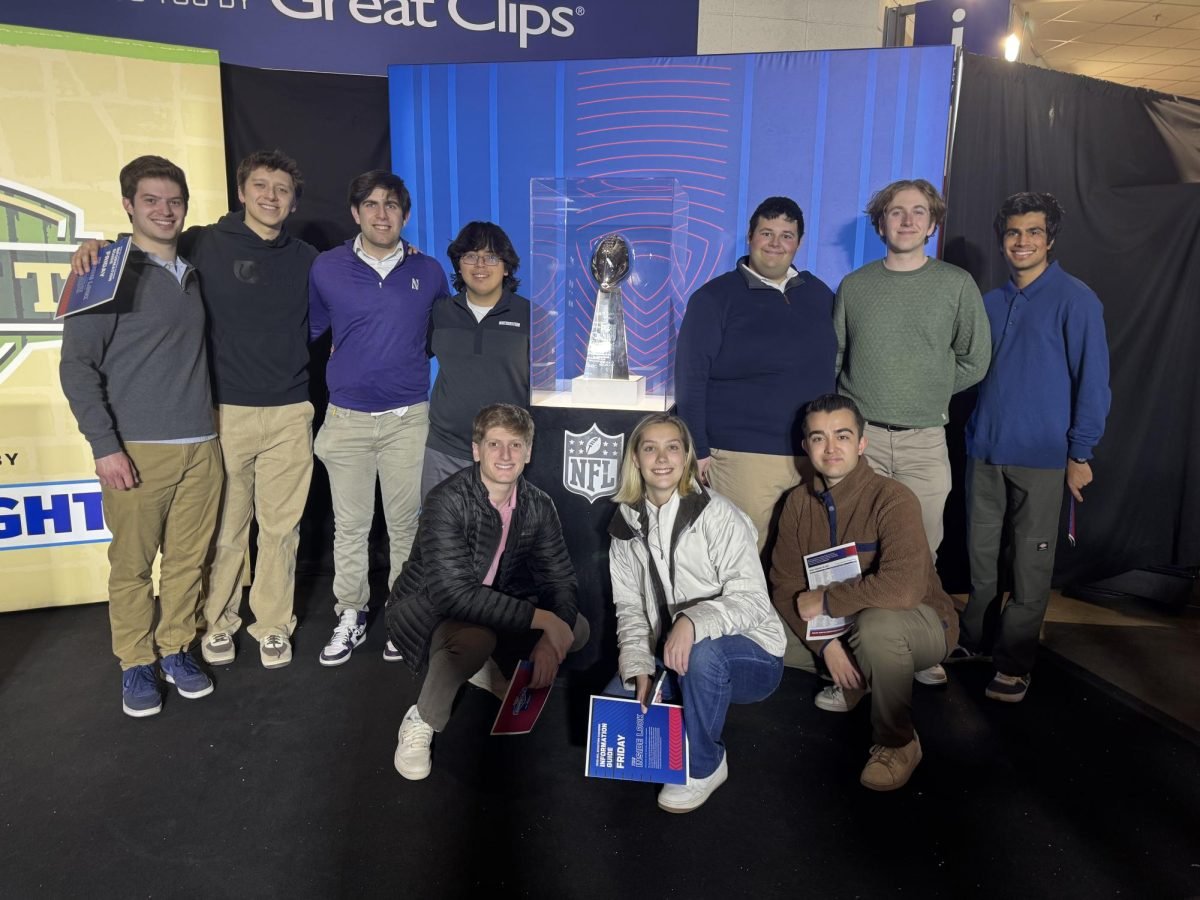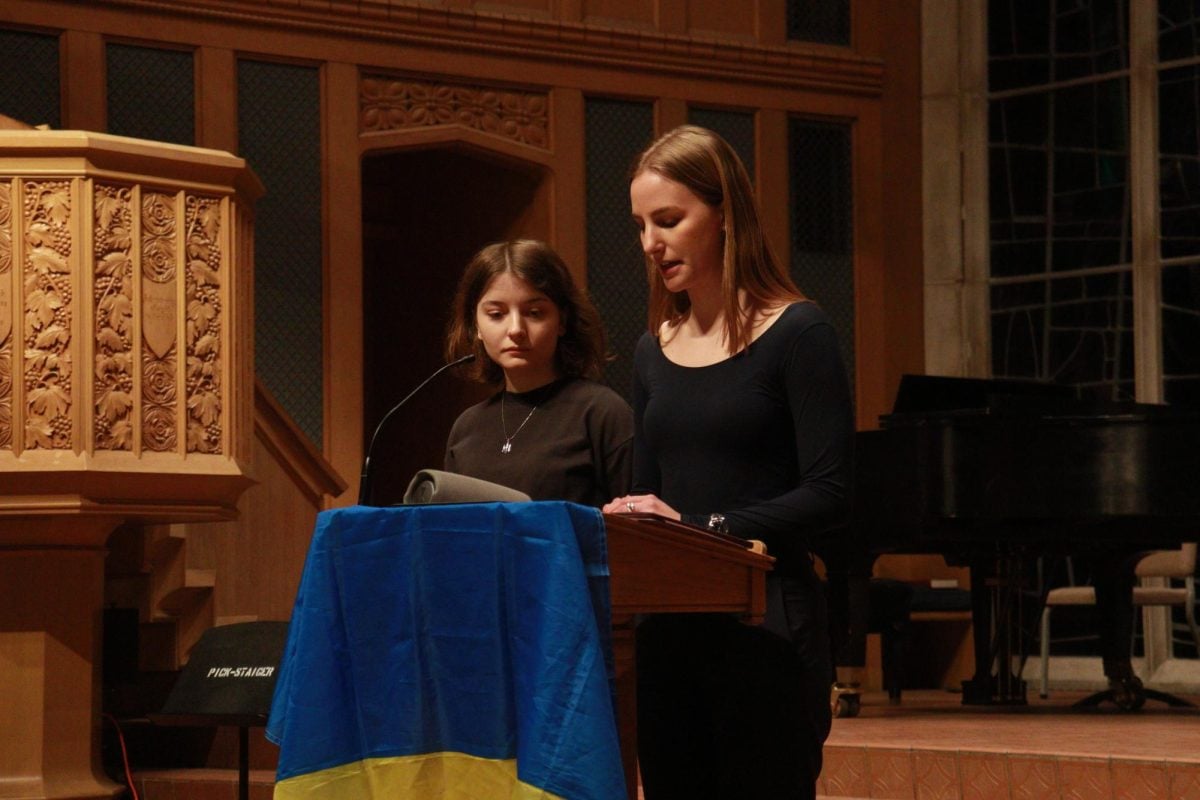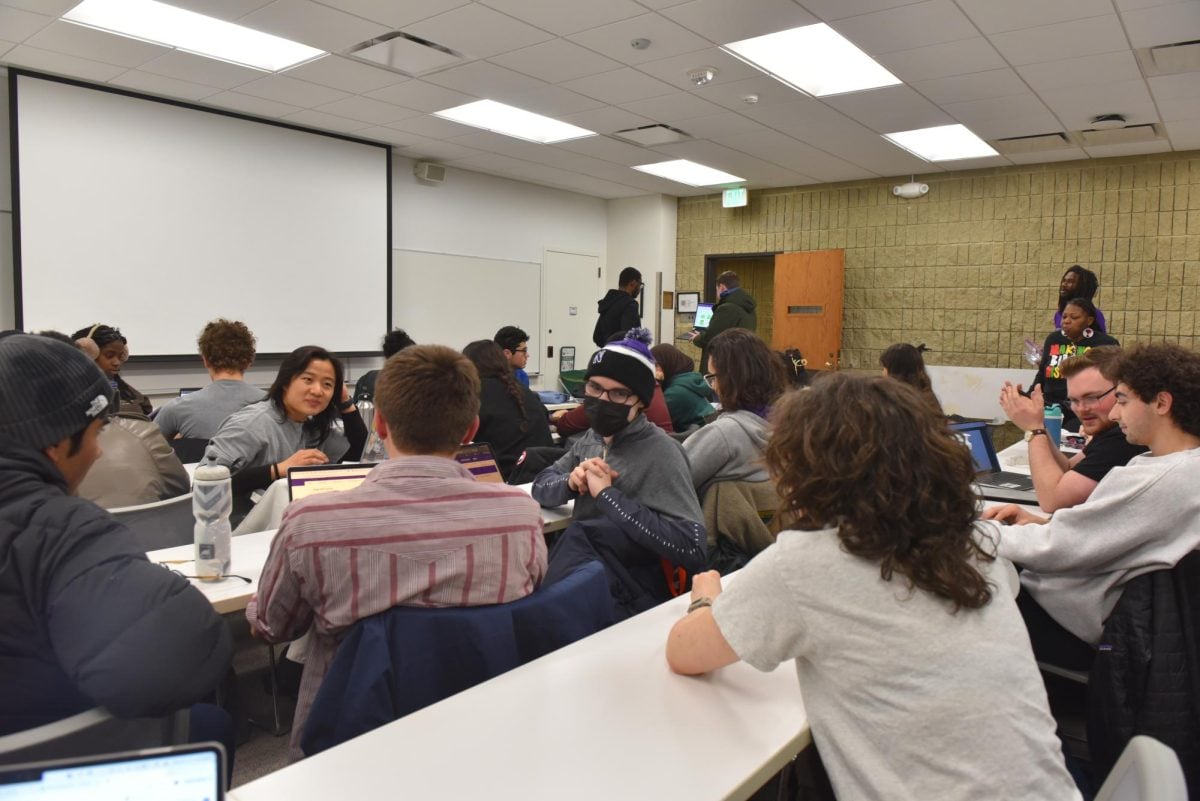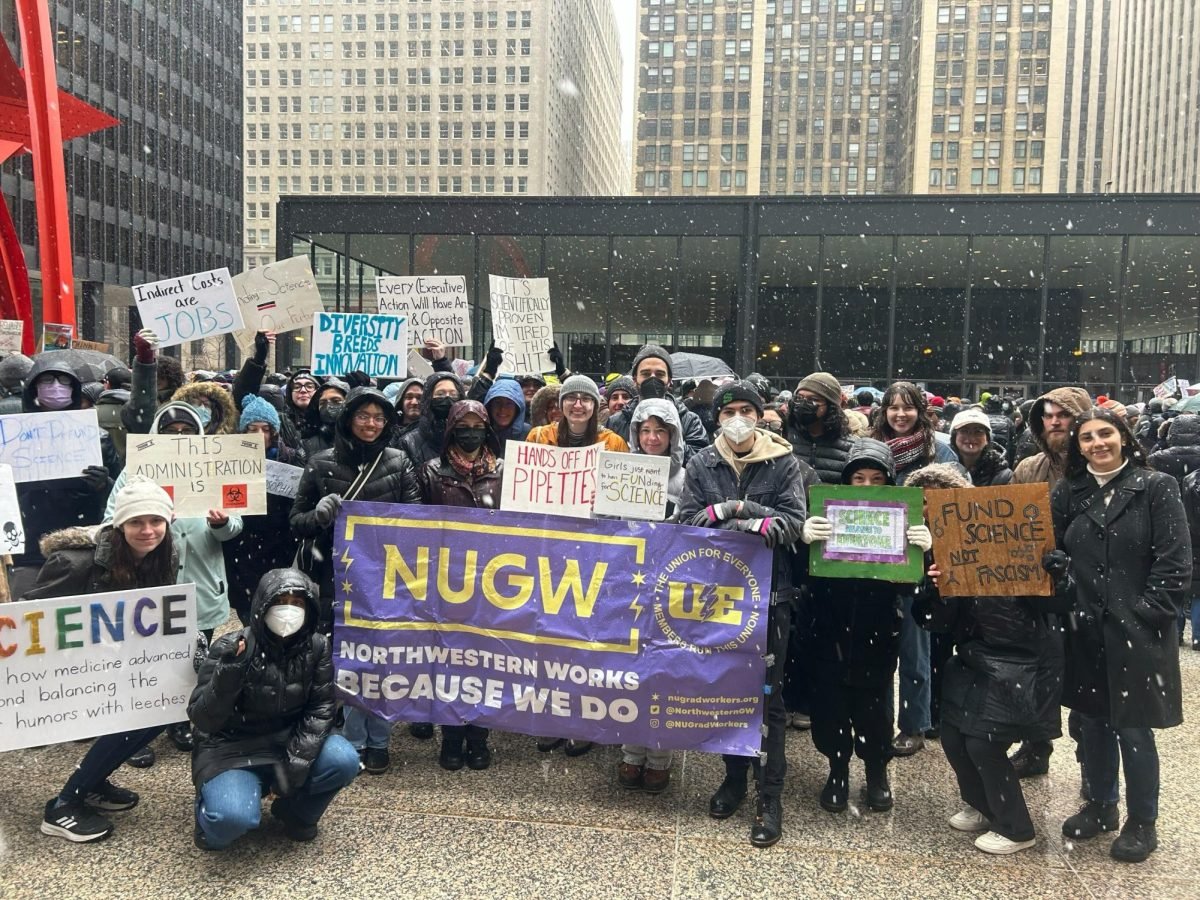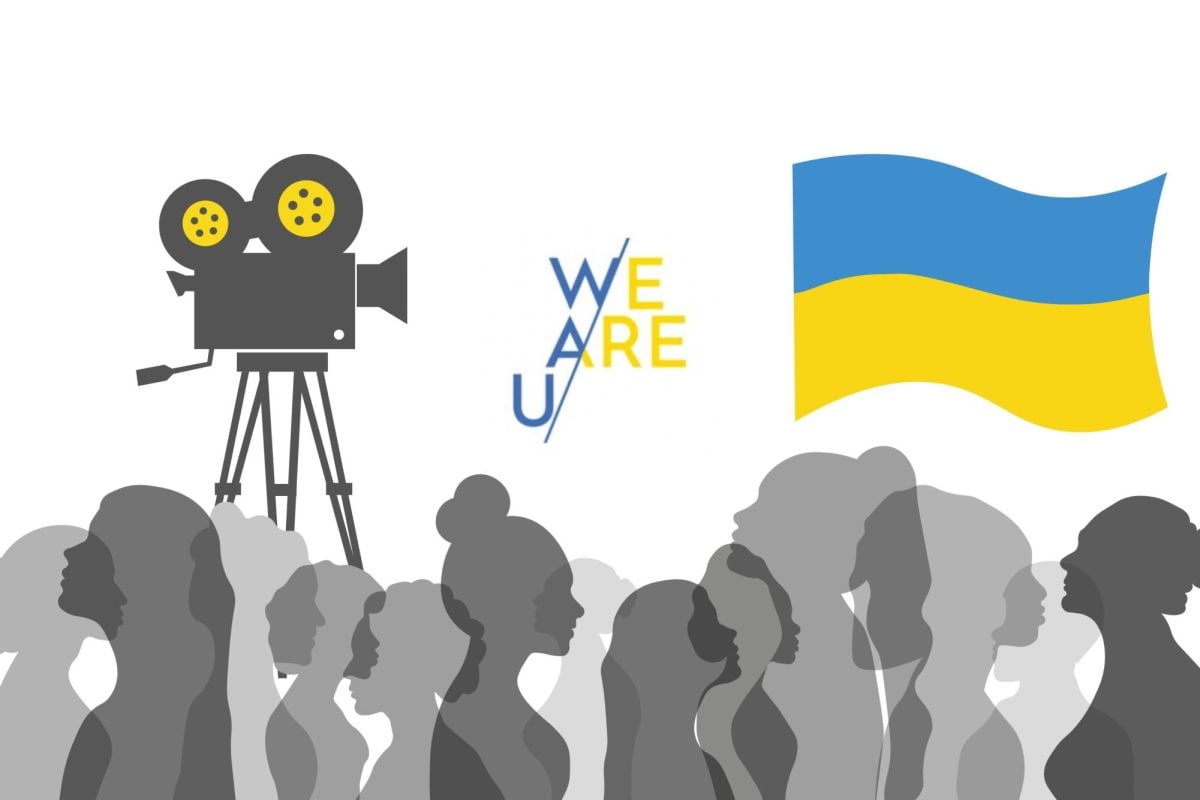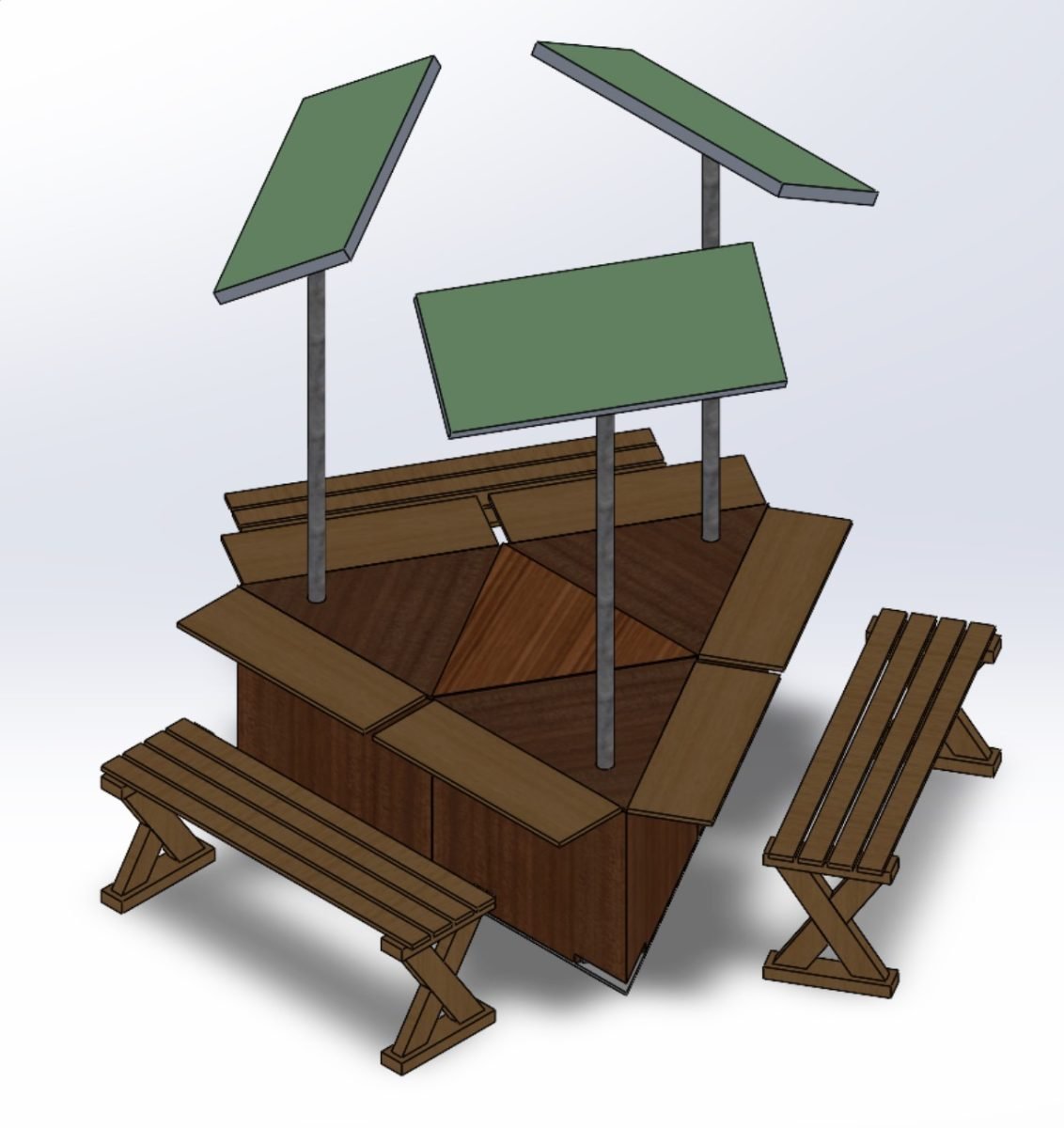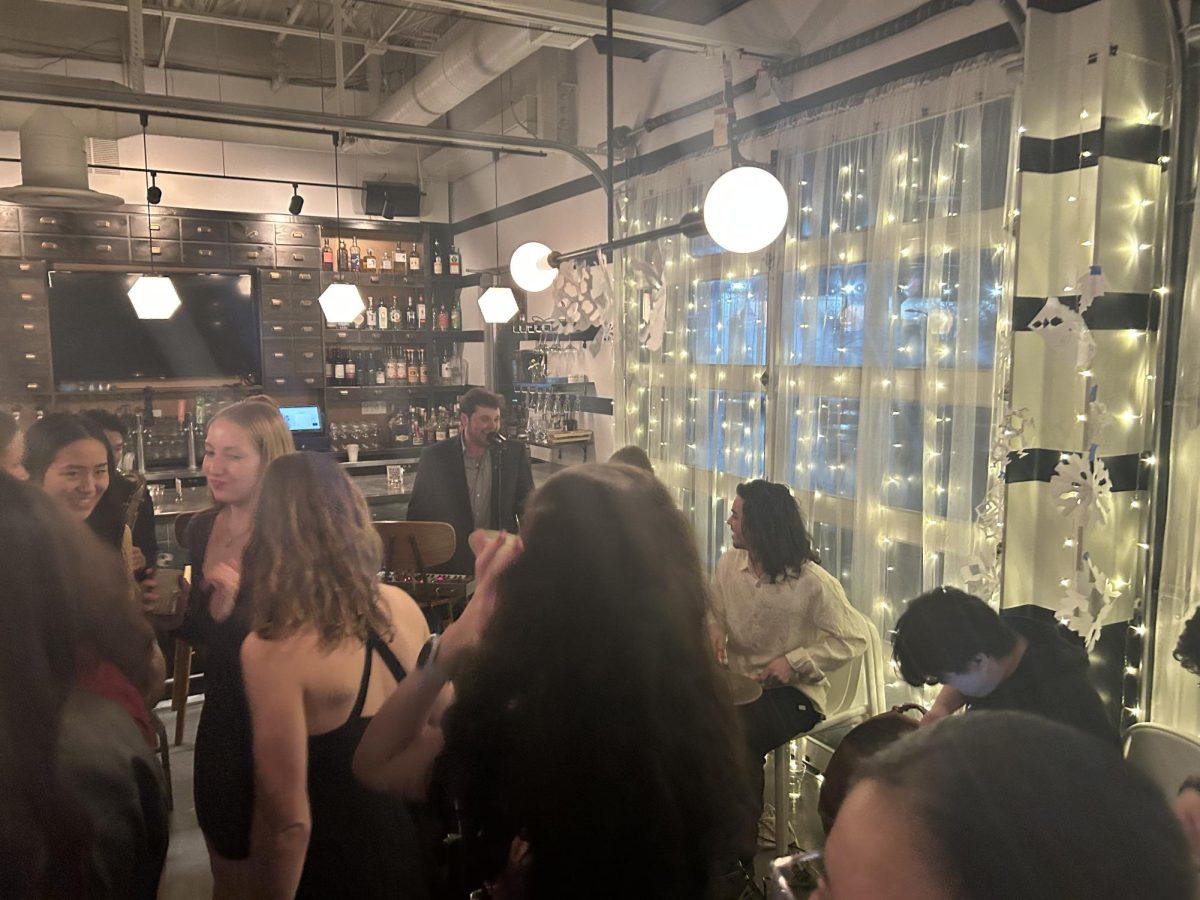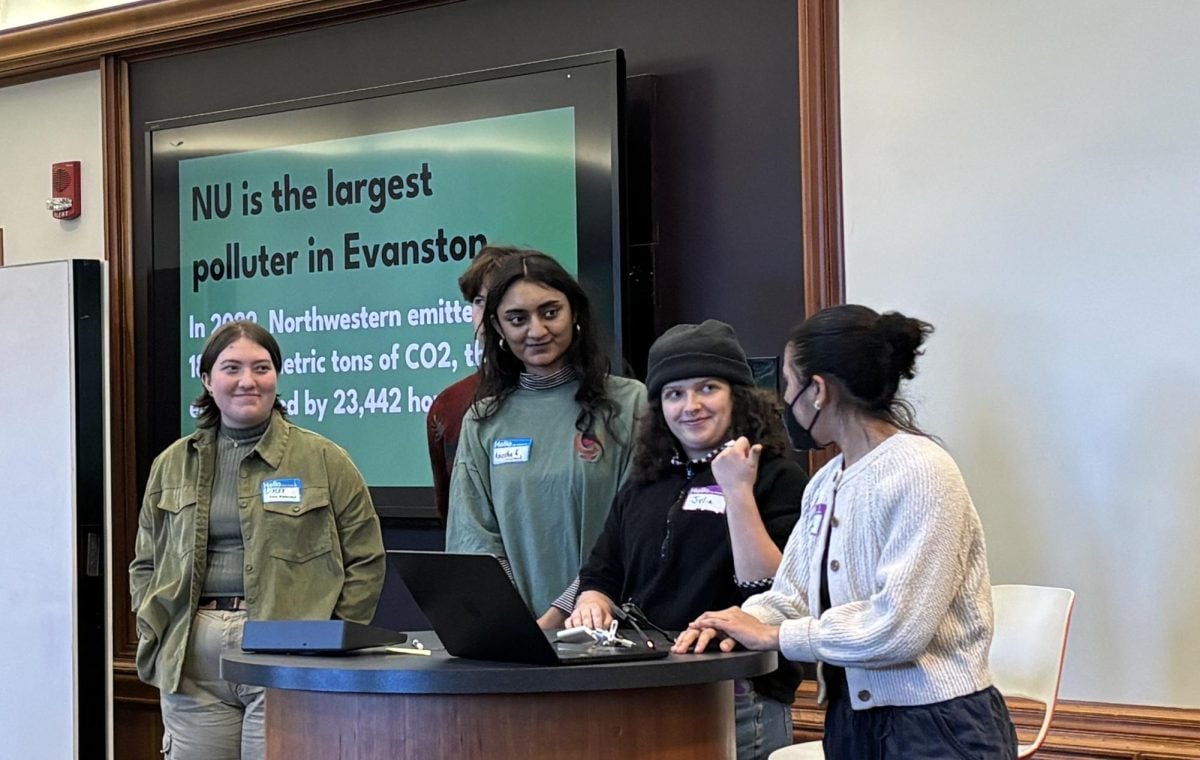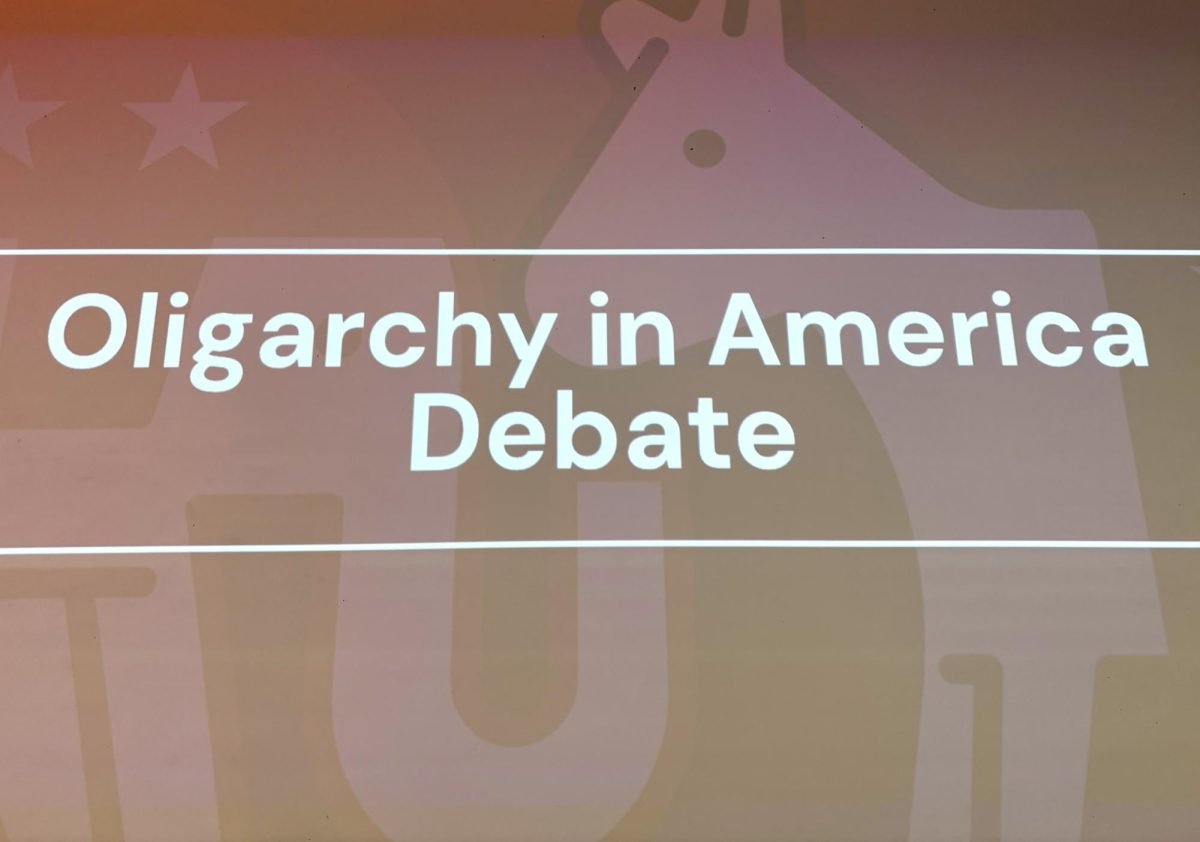Students covered The Rock in plastic water bottles Friday to launch a campaign to ban their sale on Northwestern’s campus.
Headed by Pura Playa, a plastic reduction team within Engineers for a Sustainable World, the initiative involves petitioning the student body and spreading an educational message about the harmful effects of plastic on the environment.
The group decided to host “Bottle the Rock,” an all-day petition effort at The Rock on Friday, to give its campaign more visibility and garner support from the wider student body, said Megan Scherich, who is leading the activism component of the campaign.
“Hopefully it will get people to come over and ask about what’s going on with and be more inquisitive about plastic pollution,” the McCormick junior said.
As of Sunday night, the group’s online petition had amassed more than 360 student signatures supporting the campaign. In addition to banning plastic water bottles on campus, signing the petition signifies support for providing students with reusable water bottles and upgrading on-campus water filling stations, something both the Office of Sustainability and student groups have expressed interest in this year.
The petition also endorses the creation of a committee of stakeholders comprised of students, administrators and industry representatives to evaluate the University’s water bottle policy and discuss the feasibility of implementing the ban.
Banning plastic water bottles at NU represents a significant undertaking, one that would not be met without obstacles. A major roadblock to the effort will be NU’s contract with Coca-Cola, which last year was renewed for another seven years, Scherich said. A major sponsor of NU athletics, the company owns the bottled water company Dasani and supplies the water bottles in vending machines across campus.
One of the main concerns with implementing a plastic water bottle ban involves potentially reduced revenue for Coca-Cola and NU’s retail locations. Scherich said Coca-Cola would be included in the stakeholder committee so it would be involved in the conversation. She also suggested the sale of Coca-Cola-branded reusable water bottles and University subsidies as potential ways to cover gaps in revenue.
Michael Narea, project manager of Pura Playa, said the group is attempting to rid campus of an unnecessary, harmful and expensive item. He said because plastic is not biodegradable, it contributes to buildup in oceans and landfills.
ESW members began developing their campaign after talking with McCormick graduate student Liz Kramer, who helped implement a similar ban that is still in effect at Washington University in St. Louis.
Students at Washington University reacted to the ban with mixed reviews, Kramer said. Some students found the removal of plastic water bottles to be “silly,” she said.
However, she added that the group is more likely to implement the ban if it directly partners with both students and the administration.
“You’re not going to win everyone,” Kramer said. “It helps to do a campaign that explains why it’s valuable and that students support it.”
The initiative has also garnered the support of Associated Student Government and several other environmental groups on campus. Mark Silberg, associate vice president of the ASG Sustainability Committee, said ASG will help facilitate the necessary conversations with the administration.
“What we want to do is encourage the administration to seek alternatives so that water bottle consumption becomes irrelevant on campus,” the Weinberg junior said.
Using reusable water bottles in lieu of disposable ones is an easy way for students to lessen their impact on the environment, Narea said.
“You’re going to see it affecting our later lifetimes and our children’s lifetimes,” the McCormick senior said. “It’s something that we can do as college students here to reduce our consumption.”
